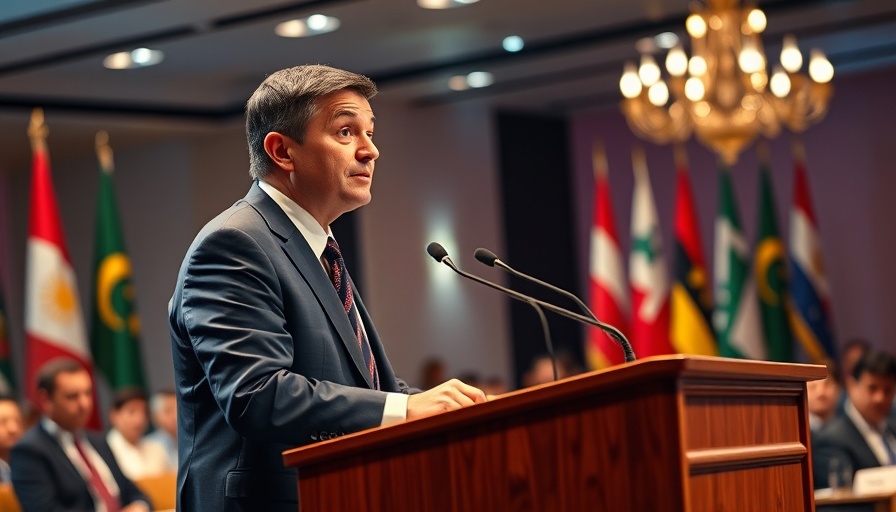
As global leaders convene at various forums to address pressing economic and political challenges, the pivotal role of the G20 stands out—especially in the context of amplifying the voices of developing nations. The recent briefing by South Africa's G20 sherpa at the UN plenary serves as a crucial reminder of Africa's increasing influence in global economic governance.
In South Africa’s G20 sherpa briefs UN plenary on key priorities, the discussion highlights how the African Union's new role in the G20 can amplify Africa's voice in global governance, sparking critical analysis on the future of development on the continent.
Understanding the G20's Role in Global Economic Affairs
The G20, representing approximately 85% of the world’s economy, 75% of international trade, and 67% of the global populace, is increasingly recognized as a critical platform for economic dialogue. This collection of the world's largest economies bears the responsibility not only for shaping economic policy but also for addressing social inequities that affect vulnerable populations globally, particularly within the context of the African continent.
Amplifying African Voices in Global Economic Governance
The inclusion of the African Union in the G20 is an historic step that could reshape discourse on development priorities. It signifies a collective acknowledgement that Africa's challenges—ranging from trade imbalances to developmental inequities—require tailored solutions that reflect the continent's unique challenges and potential. The G20 must ensure that these priorities are consistently at the forefront of its agenda, not just as an afterthought but as part of a deliberate strategy for inclusive growth.
The Pact for the Future: Key Implications for Development
During the briefing, South Africa's G20 sherpa stressed the importance of advancing the implementation of the 'Pact for the Future.' This pact is designed to ensure equitable access to resources, thereby enabling sustainable development in Africa and the Global South. These initiatives must focus on providing better terms for development financing, which can help mitigate ongoing inequities exacerbated by global economic policies.
Challenges and Opportunities Facing African Economic Development
Despite the strides made through the G20, there remain significant risks and challenges. Issues such as political instability, regulatory barriers, and inadequate infrastructure continue to undermine Africa's economic potential. However, these challenges simultaneously present opportunities for investment and collaboration, particularly in sectors such as renewable energy, technology, and infrastructure development. Increased foreign direct investment in these areas could pave the way for African entrepreneurship to flourish.
Future Predictions and Trends in African Governance
Looking ahead, the trajectory of African economic growth will likely depend on leaders' ability to leverage their collective voice within the G20. As the continent grapples with various internal and external challenges, a more integrated approach to governance that incorporates both economic development and social equity will be paramount. The success of this new collaborative framework will rest on the capacity of African leaders to engage proactively with G20 partners while ensuring that local priorities are adequately represented.
Common Misconceptions About Development in Africa
Many outside observers maintain misconceptions about Africa’s developmental landscape, often viewing the continent through a lens of despair and neediness. However, the narrative is changing. A vibrant culture of innovation and entrepreneurship is burgeoning across many African nations, challenging long-held stereotypes. Investments in technology and startup ecosystems reflect a new wave of growth and potential that should be fully recognized and harnessed.
Tools for Action: Engaging with the Global Community
For professionals interested in this evolving situation, it's crucial to engage with the various tools and platforms emerging from the G20 discussions. Keeping abreast of updates from the African Union, participating in stakeholder forums, and supporting initiatives that address system inequities are all vital avenues to drive change. Staying informed through channels such as Africanews can provide timely insights that are crucial for navigating this complex landscape effectively.
By engaging deeply with the themes discussed in South Africa’s G20 briefing at the UN, we can foster a more nuanced understanding of Africa's place in global discourse, enabling both policymakers and citizens alike to contribute to a more equitable world.
 Add Row
Add Row  Add
Add 




Write A Comment